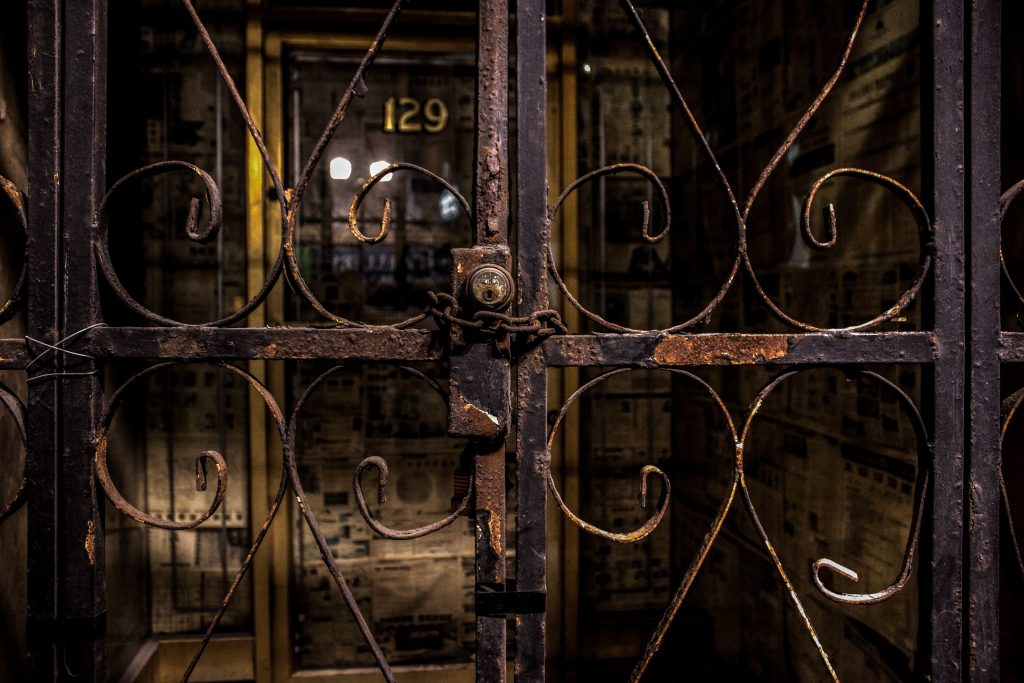Recently my Bible fell open, by Providential accident, to Isaiah 51 where I had a bookmark Henry had given me which I had put for the time being in my Bible, not being sure else what to do with it. Isaiah 51 and onward is one of the most magnificent sections of Scripture, and I got caught up in it as I have so many times. Jehovah is waking Israel from her sleep. Israel’s enemies are gone. Her captivity is over. I’ll share my thought stream as I read this passage and then the passage it led to.
Israel’s Deliverance from Captivity
“Awake, awake, put on thy strength,” comes the call in 51:9. “Awake, awake, stand up,” comes the call in 51:17 to a people who have “drunk at the hand of the Lord the cup of his fury,” drunk “the dregs of the cup of trembling, and wrung them out,” squeezed out the last drops from the settlings at the bottom of the cup, and are in a drunkard’s deep sleep. “Awake, awake, put on thy strength, O Zion,” comes the renewed call in 52:1 but with additions. “Shake thyself from the dust; arise, and sit down, O Jerusalem; loose thyself from the bands of thy neck, O captive daughter of Zion.” Israel must be roused from her stupor and freed from her bonds. Her rebellion against Jehovah has brought her low. He will now release her, lift her, beautify her.
I think of that great chapter just following that begins, “Ho, everyone that thirsteth, come ye to the waters, and he that hath no money; yea, come ye, buy, and eat; yea, come, buy wine and milk without money and without price” (55:1), and goes on,
Let the wicked forsake his way, and the unrighteous man his thoughts; and let him return unto the Lord, and he will have mercy upon him; and to our God, for he will abundantly pardon. For my thoughts are not your thoughts, neither are your ways my ways, saith the Lord. For as the heavens are higher than the earth, so are my ways higher than your ways, and my thoughts than your thoughts (51:7-9).
Be aware that the Hebrew word translated “thoughts” is not referring to a higher knowledge (that is evident from the context) but means instead “intentions,” as it does elsewhere in the Hebrew Scriptures. God is saying, “I have higher purposes toward you than you have had and have toward me.” These are the words of a grieving, longsuffering God, what G. Campbell Morgan in his commentary on Jeremiah called “the challenge of wounded love.”
What God says He is going to do will be a spiritual as well as physical deliverance from captivity. In Ezekiel He likens it to exchanging a heart of flesh for a heart of stone. This section of Isaiah brought to my mind these passages in the other two Major Prophets. But what sent my mind on a journey were the physical details of the passage, that brought to mind an event in the New Testament. Wake up, get up, stand up, put on your garment (not here your beautiful garments), and follow me. The chains fall, then the exit. I’m referring of course to the fascinating story Luke tells with such enlivening detail in Acts 12 of Peter and the angel, to which we will now turn.
Peter’s Deliverance from Captivity
Herod is riding high. He has killed John’s brother James “with the sword” to please the Jews. Peter is in prison “delivered to four quaternions of soldiers to keep him” awaiting no doubt a similar fate, but Herod has delayed it till Easter (Luke’s Gentile name for the feast of unleavened bread) so he can get the most value from it from the Jews assembled for Passover. Peter must have had in his mind the Lord’s words about his death in John 21. The church was praying. Notice the detail in the account of what follows.
The same night Peter was sleeping between two soldiers, bound with two chains; and the keepers before the door kept the prison. And behold, the angel of the Lord came upon him, and a light shined in the prison; and he smote Peter on the side, and raised him up, saying, Arise up quickly. And his chains fell off from his hands. And the angel said unto him, Gird thyself, and bind on thy sandals. And so he did.
Peter is in prison asleep. He is chained between two guards. A light shines in the prison. He is thumped on the side. He is raised up and told to get up! The chains fall from his hands. Now he can dress himself. How characteristic of Scripture to blend the human and divine. God did what Peter could not do and then told Peter what to do. “And so he did.” There was co-agency in Peter’s deliverance. He had to obey his instructions, “And so he did.” Do you need God to get you out of a tight place? He may have some instructions for you. You may have a part in it. Better listen up.
Peter does. More commands. “Cast thy garment about thee [again notice Peter’s part], and follow me.” Peter heard these words before—once by a river and twice by a lake. The Christian life with its challenges and beckonings and disappointments, its hopes fulfilled and hopes dashed, is all about “follow me.” Peter as before obeyed. “And he went out, and followed him.”
Peter was not out yet. God’s work is to open doors. Peter’s work was to follow. There was that last door.
When they were past the first and the second ward [guard], they came unto the iron gate that leadeth unto the city, which opened of its own accord; and they went out, and passed on through one street. And forthwith the angel departed from him.
That iron gate, the last one, the one that leads to the city, to the freedom of a fulfilled life.
Our Deliverance from Captivity
Now my thoughts go to those iron gates that stand in the path of God’s best for us. How do you unlock a locked up mind? Is there anything more daunting than sullen mindlock, than wounded mindlock?
I’ve been meditating on that question for years. A husband wonders about that. His wife may also—about that fortified prison yard of angers and hurts that can’t be discussed and walls out their happiness. It perplexes good parents who desire the best for their child. The iron gate—what can swing it open? What can free up a stiffened troubled mind?
The iron gate must unlock from within. But can it do so without help? The captive, self-chained by vain fantasies and false fears, will have to awake, arise, stand, reclothe and follow his Guide through the door he has closed.








